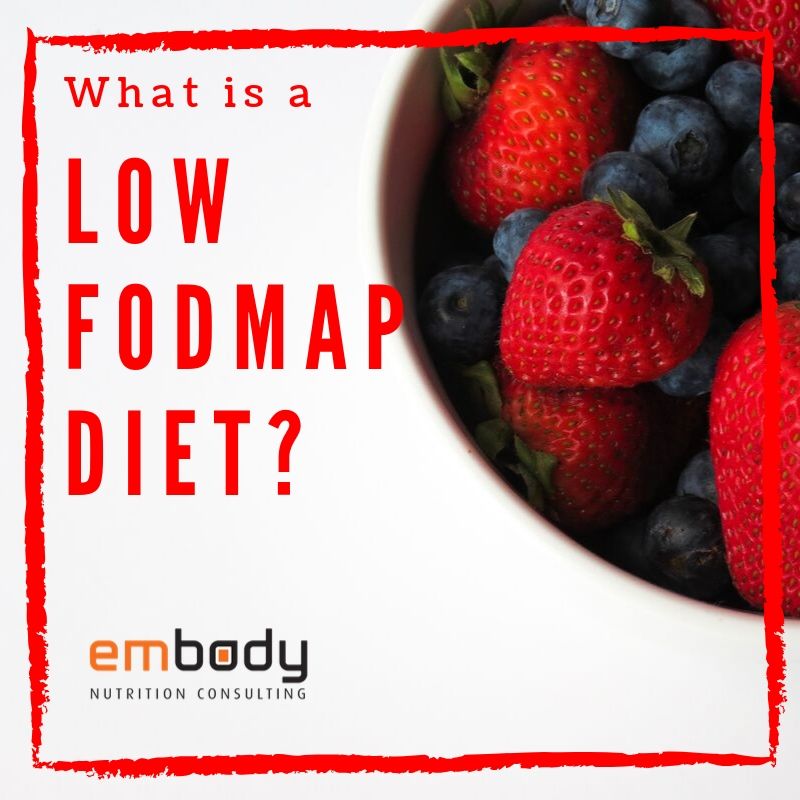What is a FODMAP?
FODMAPs stands for Fermentable, Oligosaccharides, Disaccharides, Monosaccharides and Polyols. To put this simply, these are different types of carbohydrates that may be absorbed poorly in the gut which can cause symptoms in people who have Irritable Bowel Syndrome (IBS). Such symptoms may include diarrhea, gas, bloating, constipation, pain and nausea.
How is it done?
FODMAPS are a specialised area of nutrition therefore it is important to seek out an Accredited Practising Dietician (APD) to administer this diet. A low FODMAP diet isn’t for everyone and isn’t a long-term diet change. A low FODMAP diet is designed to reduce the IBS symptoms that some foods may cause. This is done through 3 phases:
- First Phase = 2-6 week period of eliminating FODMAPs from the diet
- Second Phase = The challenge phase involves slowly re-introducing FODMAPS (6-8 weeks) back into the diet one group at a time to determine what is the cause of symptoms
- Third Phase = Involves maintaining and controlling symptoms long term through individual tolerance levels to FODMAPs
High FODMAP foods:
Here are a few high FODMAP foods which can cause symptoms; Onion, garlic, cabbage, asparagus, pears, mango, yoghurt, soft cheese, wheat-breads, cashews and pistachios.
Common Low FODMAP foods:
When completing a low FODMAP diet here are some foods which are permitted; Lactose free milk and yoghurt, banana, orange, hard cheese, meats, fish, eggs, gluten-free breads and pastas, quinoa, rice, cucumber, zucchini and peanuts.
What to expect when starting a Low FODMAP diet:
- It is important that you seek the right medical advice before starting a low FODMAP diet as other medical conditions such as coeliac disease need to be ruled out.
- Remember this is a temporary change within your life. To carry out the diet properly this can take up to 12-14 weeks to include the challenge phase of the diet. This can be a daunting and challenging to start with but once you have completed the low FODMAP diet you will be able to identify your own triggers and manage your symptoms.
- While it can be challenging to change your diet and find FODMAP friendly products, completing this with a Dietitian can help you transition to low FODMAP foods easier, with helpful tips and guidelines. There are also many more products available in the supermarket now, which cater for food intolerances, such as lactose free milk and yogurt. Monash University also developed a Low FODMAP Diet App with information on high and low FODMAP foods, along with recipes.
- Stress and other related things can trigger IBS symptoms; therefore, management of stress and anxiety is another role in helping reduce symptoms.

